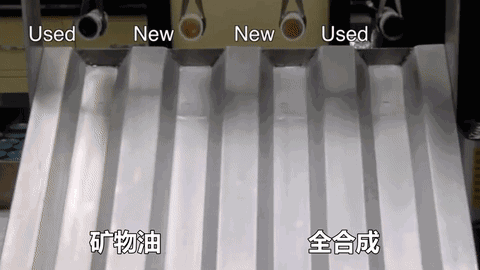Throughout the history of the automobile, the rise of the Japanese automobile industry is precisely by virtue of the two major characteristics of its products: good value for money and fuel-efficient. With these two points, the Japanese car from the 1980s onwards gradually on the sales peak.
Therefore, the Japanese automobile people, who like to do things to the extreme, decided to carry out the “fuel saving” to the end, including the development of low-viscosity, high-efficiency motor oil. Today, we're going to take a deep dive into why Japanese cars use low-viscosity engine oils.
How oil affects gas mileage
1 Low viscosity oil reduces engine resistance to motion
A low viscosity oil reduces the frictional resistance between parts, which is this resistance to running inside the engine.
2 Low-viscosity motor oil saves oil at different speeds
Many manufacturers have experimented with low-viscosity oils, and found that the reduction of internal running resistance of the engine can indeed save oil.
However, different parts of the engine at different speeds, the viscosity of the oil needs are not the same, for a small number of parts, low-viscosity oil is not necessarily better, and will even have certain side effects.
3 Low viscosity engine oil is the most fuel efficient in the daily use range.
Experimental results show that the range of 1000 to 3000 rpm, low-viscosity engine oil side effects are minimized, the most obvious fuel-saving advantage, out of this range, the fuel-saving effect is not so obvious.
What are the characteristics of a low viscosity Japanese car
1 VVT Technology
The engines of Japanese cars have always been known for their reliability and fuel savings, and this is of course not possible without the support of VVT technology.
VVT engine is different from the general engine, first of all, the design of the oil circuit is very delicate, because in the adjustment of the valve advance and delay angle, the operation is all implemented by the oil to complete.
In order to ensure that the VVT can work in time and accurately, so the VVT engine has very high requirements for the fluidity of the oil.

If the viscosity of the oil is too high it will make the engine VVT work sluggishly, so engines with variable timing valves must use low rolling resistance and high fluidity oil. Therefore, 0W-20 oil becomes the first choice for Japanese cars.
2 High Precision Parts
Automobile camshaft is the engine working pressure of the largest institutions, the working state is sliding friction, running resistance is relatively large, the camshaft processing accuracy affects the engine performance and power output, so the requirements of extremely high processing accuracy.
Japanese automobile manufacturers through the precision machining process to deal with the camshaft neck as smooth as a mirror, extremely smooth journal surface on the viscosity of the lubricant requirements are greatly reduced.
3 The engine works at a lower temperature
The optimized design of Japanese cars makes the engine work in a lower temperature state, which is the most important condition for the use of low-viscosity engine oil.
Beijing, a motor oil research institute technical team by doing driving tests, the same 100 kilometers per hour speed driving, Japan and South Korea car sump oil display temperature is much lower than the temperature of the mass of cars, Japanese cars less than 90 ℃, Volkswagen close to 110 ℃.
Through the experiment, it is concluded that the low engine working temperature is the fundamental reason why Japanese cars can use low viscosity engine oil, Japanese and old Volkswagen engines use 5w20, 5W40 viscosity engine oil respectively, the engine working temperature of 90 ° and 110 ° under the condition of the engine oil viscosity index is still close to similar, lubrication and protection effect is good.

Low-viscosity motor oils have long been the focus of attention and research by Japanese OEMs toward the goal of saving energy and fuel;
Low-viscosity motor oils are usually made with fully synthetic base oils of higher stability and blended with specially developed additives;
Low-viscosity motor oils must be compatible with highly sophisticated engine components;
However, it is not recommended to blindly change the low-viscosity motor oil in order to save fuel, and it needs to be different from car to car. Automobile oil selection, suitable for the most important!

